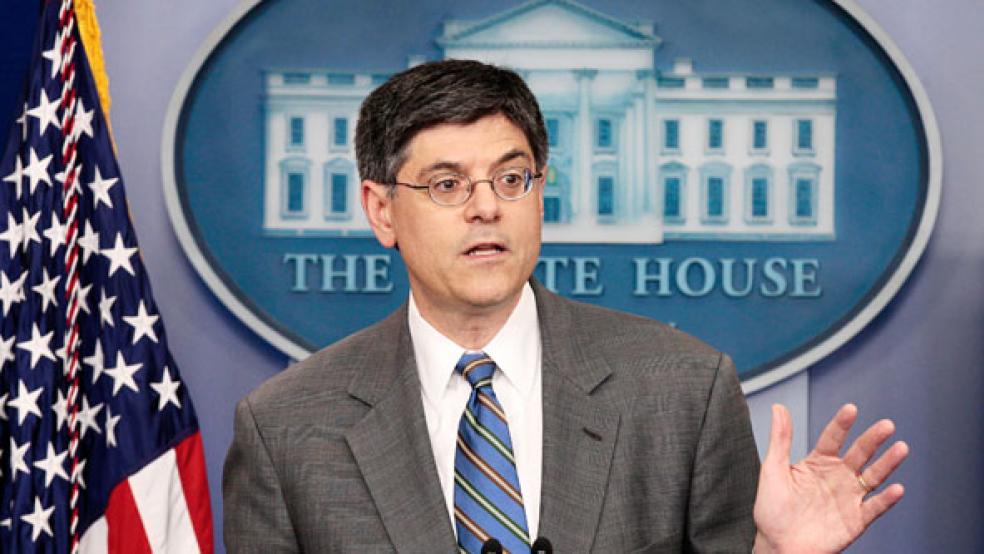White House Budget Director Jacob “Jack” Lew on Tuesday warned that Republican lawmakers’ willingness to provoke budget crises would greatly complicate efforts this fall as the Obama administration and Congress to negotiate an economic stimulus package and long-term deficit reduction.
Lew, the director of the Office of Management and Budget, told a government advocacy organization that in 30 years of public service, he hasn’t seen a more divisive, partisan, and anti-government political atmosphere in Washington. “And right now, looking at the political debate, there is unfortunately on the part of some a willingness to really force crises – to drive the car to the edge if not off the cliff. We have seen it in a willingness to shut down the government or to run the risk of default, and to run the government by ultimatum as opposed to negotiations.”
Speaking the morning after the Senate and House reached agreement on spending policy to once again avert a government shutdown and assure a continued flow of federal emergency disaster assistance, Lew warned that Republicans and Democrats alike are contributing to voter contempt for Washington. “People are frustrated with gridlock, they’re frustrated with political positioning when it doesn’t look like Washington is dealing with the problems that they are facing -- from an economy that’s not growing fast enough to aging infrastructure that everyone in their communities sees the need for us to be dealing with,” he said.
The typically even-keeled Lew’s sharp rhetoric largely echoes that of President Obama, who has been campaigning throughout he country for his new jobs-creation package and deficit reduction proposals. A bipartisan congressional “Super Committee” has been charged with coming up with recommendations for $1.5 trillion of long-term deficit reduction by Thanksgiving, but the conflicting requirements of Obama and House Speaker John Boehner, R-Ohio, may make it impossible for the joint House-Senate panel to reach agreement.
Boehner and other GOP leaders have sharply criticized Obama’s fiscal and economic policies as wrong-headed for attempting to raise taxes to finance his jobs initiatives when they say that will only discourage economic expansion. Republican leaders are pressing for a deficit reduction package almost completely reliant on cuts in entitlements and other government programs, while Obama and Democratic leaders say there must be a balance of spending reductions and tax increases.
Asked whether he was skeptical the joint committee would reach a consensus, Lew told The Fiscal Times: “I think that the 12 members of the Super Committee understand the importance of the challenge they are undertaking. They’re putting the time into figuring out how they can work together and how they define the options. And I think we all need to give them some time and some space to get that worked out.”
Lew addressed a conference sponsored by the Partnership for Public Service, a government advocacy group that released a study providing recommendations for Congress, the administration, and agency leaders on how best to achieve budget savings based on sound public policy.
The report, “Making Smart Cuts,” produced in conjunction with the Booz Allen Hamilton consulting firm, reviewed the Clinton-Gore administration’s National Performance Review effort and congressional Republicans’ large-scale, government wide reforms, and downsizing throughout the 1990s. Those initiatives largely hinged on across-the-board budget and program cuts, reductions in administrative costs, forced layoffs, consolidation or centralizing functions, “reengineering the delivery of services, heavy investment in information technology, and outsourcing of government activities to contractors.





